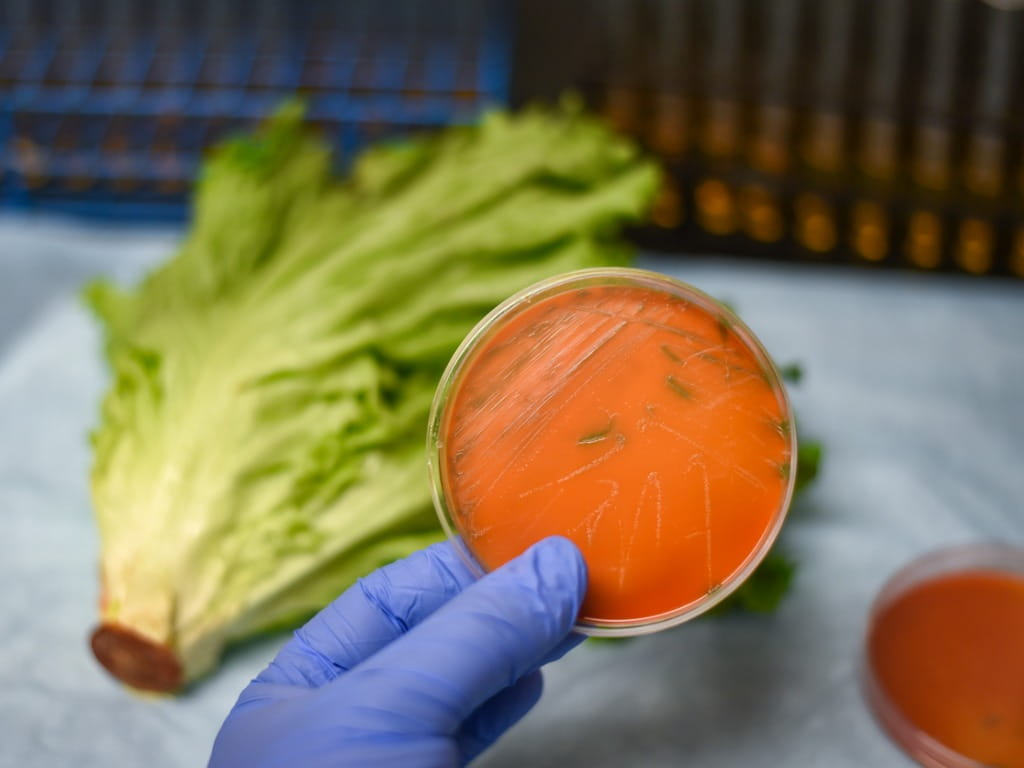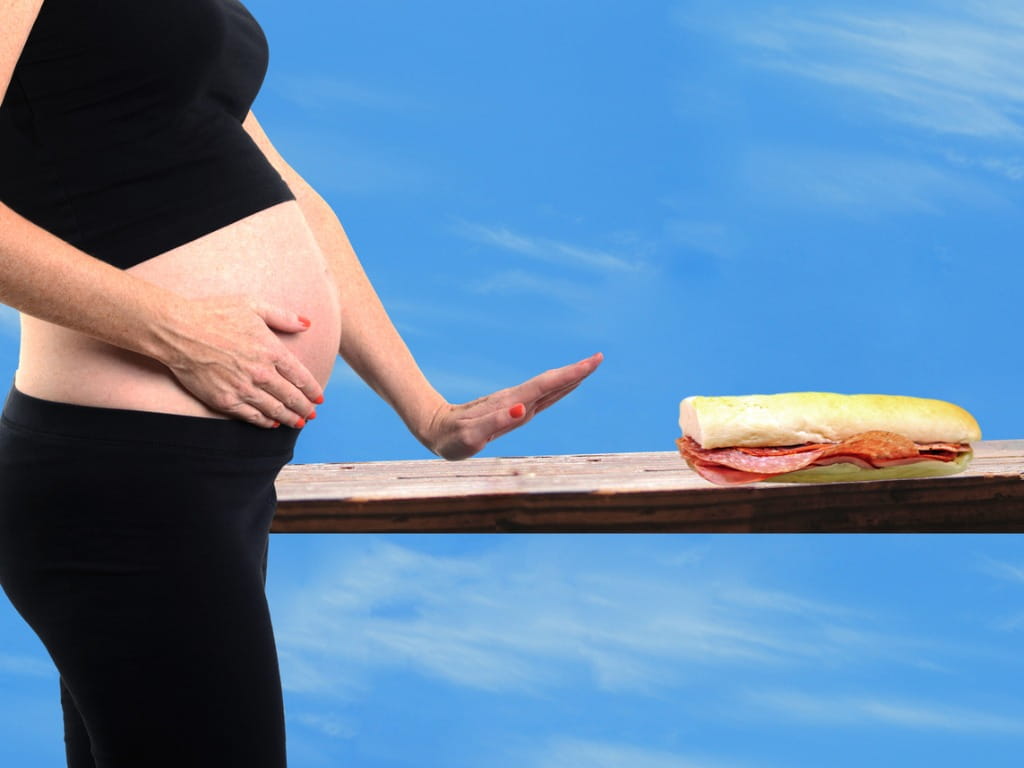What is Listeria?

The Bottom Line
Listeria monocytogenes is a bacterial species that causes foodborne illness in humans. Listeria infection can occur after consumption of contaminated meats, dairy products, and produce. Pregnant women, children, and people with compromised immune systems are at high risk for severe complications of Listeria infection.

What is Listeria monocytogenes?
Listeria monocytogenes is a bacterial species that was initially discovered in the 1920s in rodents, rabbits, and guinea pigs, and is now recognized as a foodborne pathogen in humans. Although Listeria monocytogenes infections in humans are rare, they are associated with a higher mortality rate than other foodborne diseases. Listeria is responsible for nearly 20% of deaths due to consumption of contaminated food in the US.Where is Listeria found?
Listeria monocytogenes is found throughout nature in soil, water, and foods. Listeria can grow in various environmental conditions, including a wide range of temperatures and pH levels. Because Listeria can survive exposure to low temperatures, refrigeration does not prevent its growth. Listeria cannot grow or survive at low pH levels, so vinegar, sorbic acid, and other acidic ingredients are often added to refrigerated foods to increase acidity and prevent bacterial growth. Exposure to high temperatures, including pasteurization, is effective in killing Listeria, but foods that are unpasteurized or minimally pasteurized can easily harbor the bacteria.What foods can contain Listeria?
Raw vegetables, dairy products, meat, and soft cheeses are common sources of Listeria. Up to 70% of hot dogs contain Listeria. Refrigerated deli meats, frozen vegetables, and milk can also be contaminated with Listeria.What causes outbreaks of Listeria?
Because Listeria is present throughout our natural environment, it can easily be introduced into food processing environments through contaminated raw materials, equipment, or workers. If sanitation practices are not closely followed, it can spread from equipment and workers to food products. Outbreaks of Listeria can occur after people consume contaminated processed, ready-to-eat, or refrigerated meat and dairy products. Listeria outbreaks have also been connected to fresh produce, caramel apples, smoked fish, and canned vegetables.How does Listeria affect the body?
Listeria is absorbed through the gastrointestinal tract and spreads throughout the bloodstream to organs, including the liver and spleen. Healthy people are typically able to clear the infection from their bodies without difficulty, resulting in self-limited disease. In susceptible people, such as people with compromised immune systems, Listeria can undergo further spread through the bloodstream to other organs, causing a serious, invasive, and often fatal disease called listeriosis. In pregnant women, Listeria can spread through the bloodstream to the placenta and fetus and can cause both maternal and fetal disease.What are Listeria symptoms?
The signs and symptoms of Listeria illness typically occur within days of eating contaminated food, although in some cases, it can be delayed for weeks. In healthy people, Listeria monocytogenes infection often causes nausea, vomiting, diarrhea, and fever. Pregnant women, the elderly, young children, and fetuses are susceptible to listeriosis, which is characterized by meningitis, pneumonia, sepsis, and other serious infections. Pregnant women affected by listeriosis can experience miscarriage or premature delivery, and infants born to mothers infected by Listeria can develop breathing difficulties, fever, meningitis, and other life-threatening infections.What are the symptoms of Listeria in pregnancy?
Signs and symptoms of Listeria in pregnant women are often non-specific and include flu-like symptoms, muscle aches, and gastrointestinal distress. Some pregnant women can experience more severe symptoms, including infections of the heart, brain, or placenta. Unfortunately, nearly one-third of pregnant women affected by Listeria infection are asymptomatic, making the diagnosis difficult to establish in many cases. While Listeria infection can occur at any time during pregnancy, most cases occur during the third trimester (after the 28th week of pregnancy).Can Listeria be killed by cooking?
Heating meats, leftovers, and ready-to-eat foods to 165°F before eating them can kill Listeria bacteria that might be present in these foods.Is there a treatment for Listeria?
Most healthy people who have self-limiting gastrointestinal symptoms related to Listeria will recover completely without specific treatment. In some cases, the gastrointestinal symptoms can cause dehydration that requires hospitalization for intravenous fluid administration. People with severe listeriosis typically require hospitalization and treatment with intravenous antibiotics for several weeks.What do I do if I think I have Listeria?
For questions about food poisoning or adverse or unexpected symptoms related to food consumption, contact Poison Control for expert advice. Get a fast, personalized recommendation online using the webPOISONCONTROL online tool or call 1-800-222-1222. Both options are free, confidential, and available 24 hours a day.Kelly Johnson-Arbor, MD
Medical Toxicologist
Revised William G. Troutman, PharmD
Professor of Pharmacy Emeritus
Poison Control Media Information
Did you find this page helpful? If so, we need your support. Poison Control is in constant competition with misinformation online. Links to www.poison.org or our webPOISONCONTROL triage tool from other websites and blogs help internet searchers quickly find accurate information and Poison Control’s contact information in an emergency. If you use the content from this page, please provide attribution via a link back to this page, www.poison.org, or https://triage.webpoisoncontrol.org/#!/exclusions. By doing so, you could save a life. Thank you!
Poisoned?
Call 1-800-222-1222 or
Prevention Tips
- Pregnant women and people with compromised immune systems should avoid consumption of soft cheeses (including brie, feta, and Mexican-style cheeses, unless specifically labeled as pasteurized), deli meats, and ready-to-eat foods.
- Wash all fresh produce before eating.
- Avoid consumption of raw or unpasteurized foods.
This Really Happened
A 31-year-old woman, pregnant with twins, developed a fever during the 35th week of her pregnancy. She went to a hospital for evaluation and was diagnosed with an infection of the placenta (called “chorioamnionitis”). She was admitted for labor induction due to the infection and delivered healthy twins by cesarean section. The mother underwent testing that found Listeria bacteria in her bloodstream. When questioned, she denied eating lunch meats or soft cheeses, but she did report that she had eaten boiled hot dogs and store-bought hummus throughout the pregnancy. The mother and her twin infants were treated with intravenous antibiotics, and all made a full recovery. The local health department performed an investigation but was unable to find any contaminated foods in her home (from Rouse et al, 2016).For More Information
Listeria (listeriosis). US Centers for Disease Control and Prevention. Reviewed July 19, 2024. Accessed August 7, 2024.
Listeria (listeriosis). US Food & Drug Administration. Updated July 20, 2022. Accessed August 7, 2024.
References
Schlech WF 3rd. Foodborne listeriosis. Clin Infect Dis. 2000;31(3):770-775.
Poisoned?
Call 1-800-222-1222 or
Prevention Tips
- Pregnant women and people with compromised immune systems should avoid consumption of soft cheeses (including brie, feta, and Mexican-style cheeses, unless specifically labeled as pasteurized), deli meats, and ready-to-eat foods.
- Wash all fresh produce before eating.
- Avoid consumption of raw or unpasteurized foods.
